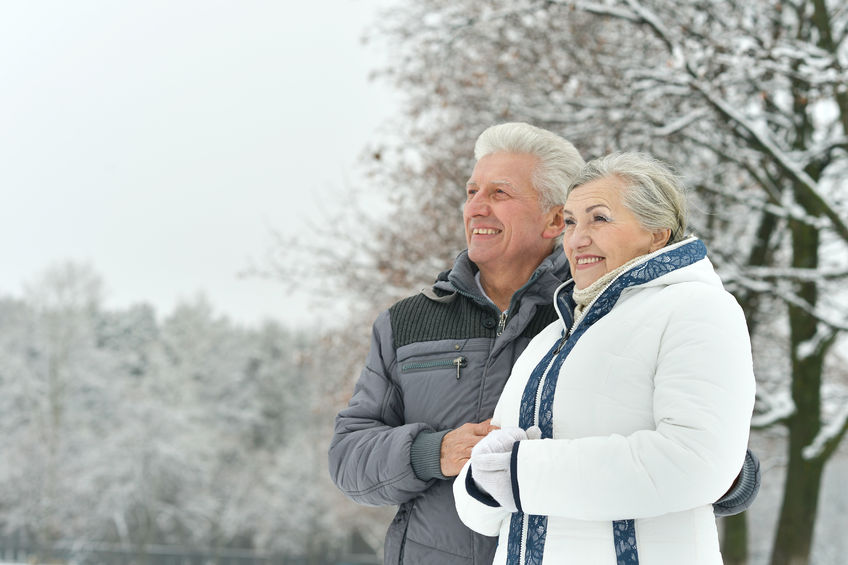We all know how tough winter weather can be in terms of getting where you want to go safely, but consider how much harder it is for older people. Slippery sidewalks that can cause a fall can result in much more than just a bruise for the senior. Read some winter safety tips for seniors that can keep you healthy and well this winter season, and where you can find help if you do suffer an injury.
Winter Safety Tips for Seniors
While these pieces of advice are great for anyone in the wintertime, winter safety tips for seniors are especially important to avoid injuries that can result in long convalescences and even disabilities resulting from harsh weather conditions. Follow these tips to avoid slipping, stay warm, keep the winter doldrums at bay, and prepare for unforeseen emergencies this season.
Slip and Fall Injuries
Slip and fall injuries are some of the most common incidents seen in the holiday season. Snow, sleet, freezing rain and icy sidewalks present a major hazard. Wear solid shoes with non-slip soles and good traction. Don’t go out when conditions are bad, and take it slow when you’re out walking. If there are handrails, use them!
Keep Warm
Seniors are especially susceptible to conditions like hypothermia and frostbite. Even though it costs a bit more, keep the temperature at a comfortable level in your home, and when you’re outdoors, dress in layers including heavy socks and a coat, warm and insulated gloves, a heavy hat and scarf. Cover all exposed skin as much as you can—even your mouth, to avoid breathing in cold air.
The Winter Blues
Depression and loneliness are a major source of danger in the winter months. Seniors can experience mood swings, isolation, anger, and even physical illness as a result of being cooped up. Family members should be sure to check in regularly, and make an effort to help your loved one get out and about when possible.
Eating a healthy diet rich in vitamins and minerals can also help to battle depression and health issues that come with the winter months. Eat a varied diet that includes milk, whole grains, fish (especially salmon and tuna), lean protein and plenty of veggies.
Prepare for Emergencies
Prepare for emergencies in the home and abroad. Give the car a thorough seasonal checkup to make sure everything is working properly and that it won’t die on you in an unfortunate circumstance. Keep an emergency kit on hand in the car with blankets, a flashlight, food (energy bars and non-perishables), bottled water, batteries and a first-aid kit.
At home, keep batteries in your smoke and carbon monoxide detectors, keep battery powered radios, flashlights, and mobile device chargers handy. Keep non-perishable foods on hand in case of an outage lasting a few days.
Getting Help
If the unthinkable does happen even when following winter safety tips for seniors, and you need legal help and advice, an elder law attorney is the first place you should turn. Stano Law is here to serve seniors in Ohio with a wide variety of legal needs. For more information, give us a call today!








It’s our first winter because we just migrated here and my dad’s so worried about it because he can’t take cold for a long time and he’s also worried if he’s capable of going out when there’s snow. He’s 80 years old now. I’m going to share this article to him later. I’m sure he’s going to like this. Thanks a lot for posting!